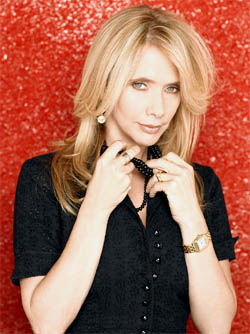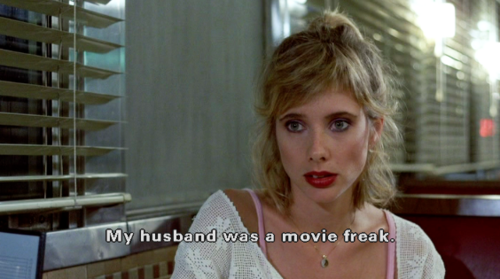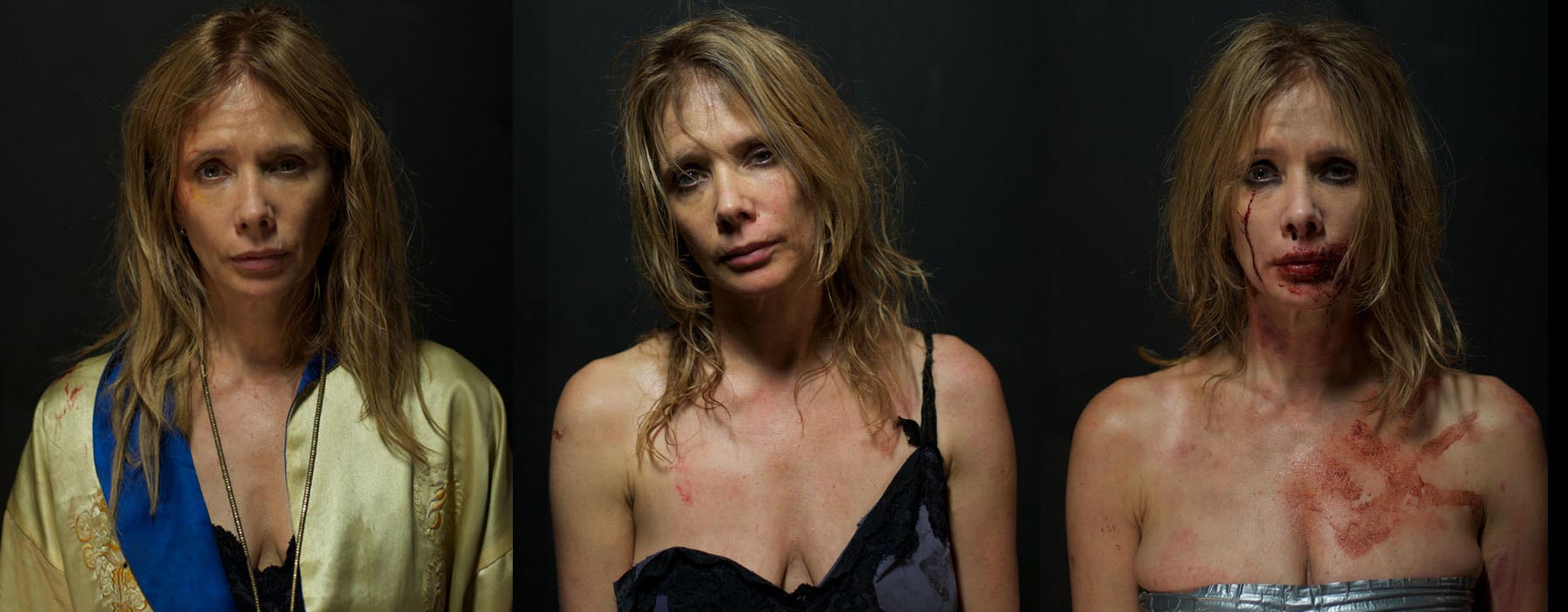 Craig here with Take Three. Today three New York stories starring Rosanna Arquette
Craig here with Take Three. Today three New York stories starring Rosanna Arquette
Takes One & Two: Desperately Seeking Susan and After Hours (both 1985)
Rosanna Arquette was very much at home in Eighties New York. As Roberta Glass in Susan Seidelman’s Desperately Seeking Susan and Marcy Franklin in Martin Scorsese’s After Hours, she had some strange and bewildering night-time adventures. Her well-to-do New Jersey housewife in the former sought and stalked an elusive Madonna; in the latter she was a curious, oddball girl courted by a desperate Griffin Dunne. These two films were early high points in Arquette’s career and established her as one of the decade's most likeable character actresses.
Susan was all about chasing the idea of Madonna, but it was Arquette who led us through Seidelman’s madcap Manhattan to do so. You couldn’t blame Roberta for wanting to add mystery to her life, dull as it was as a bored, mousy housewife. The plot hijinx involved a jacket that “used to belong to Jimi Hendrix”, mistaken identity at Battery Park, stolen Nefertiti earrings that got her into trouble with a creepy Will Patton and a bonus romance with a sensitive projectionist (Aiden Quinn).
More dark and comic nights for Rosanna's soul after the jump...
Through all of this Arquette hit just the right notes between dumbfounded and coy, her dazed bafflement both believable and enjoyable. Whether she was mooning over the Manhattan skyline, dashing around with a cage of doves or working as a rubbish magician’s assistant, she worked both poignant and slapstick angles with equal aplomb. If you’ve ever fantasised about silver screen escape you could find something absorbing about her charming work here.
Later that same year it was Arquette’s turn to give someone else (Griffin Dunne) the run-around. Her Marcy was a peculiar night owl: perhaps a compulsive liar, perhaps a burns victim, definitely not all... quite there. She was irrefutably kooky, the kind of girl who strikes up a conversation with a complete stranger on the topic of Miller’s "Tropic of Cancer" and tells tales of an ex’s Wizard of Oz-related sex games with a blackly comic twitchiness that would make anyone feel uneasy.

Marcy was the ‘80s version of the Manic Pixie Dream Girl (she even lived with an artist who made bagel paper weights!), but her quirkiness came complete with a hint of darkness and only a shred of tweeness. Arquette, so desperate for mystery in Desperately Seeking Susan, brought her own to the After Hours party by way of Marcy’s tricky-to-pin-down personality perfectly pitched to compliment the ominous, off-kilter vibe Scorsese was after. Many of the oddballs that Dunne stumbles across were just bonkers New Yorkers, but Arquette gave Marcy a touch of sadness, especially considering her inexplicable fate. Her strangeness made a strong impression and was an asset to Scorsese’s zaniest New York film. He must have enjoyed the experience because he cast her again in his New York Stories segment in 1989.
Take Three: The Divide (2011)
It’s underestimating the matter to say that Arquette didn’t have such a great New York adventure as the desperate Marilyn in post-apocalyptic thriller The Divide, one of her most high profile roles in some time. Though, to see director Xavier Gens largely waste her talent on the periphery, even if it's a somewhat pivotal role, is a massive shame. Nevertheless, Arquette offers up some quality emoting for the duration. The Divide is like a grubby sci-fi version of Sartre’s No Exit, only set in a concrete bunker and cast with a bunch of people who do find an exit, but only to more hellishness.
 Variations of Arquette's Marilyn in "The Divide" (2011)
Variations of Arquette's Marilyn in "The Divide" (2011)
Arquette is the only one of the eight trapped souls to give the film much-needed heart. Marilyn has her daughter taken away from her early on and thereafter suffers the worst brutality at the hands of the alpha males. What happens to her ain’t pretty but throughout the film I was astonished that Arquette was still willing, at this later stage in her career, to give a role some dark grit; she doesn't back out of uneasy scenes or succumb to lazy characterisation. As she descends into a foggy despair that consumes her, it gets harder to see what Marilyn is all about as she seeps into further misery and domination. Stripped of her child, she becomes a sad, fathomless entity (“she was all that’s good in me,” she says of her daughter in the film’s sole instance of heartbreak). Arquette reaches emotive depths that The Divide doesn’t otherwise offer and her performance acts as a reminder that she's still a vital, daring actress.
Three more films for the taking: Baby It’s You (1983), Crash (1996), Buffalo ’66 (1998)
